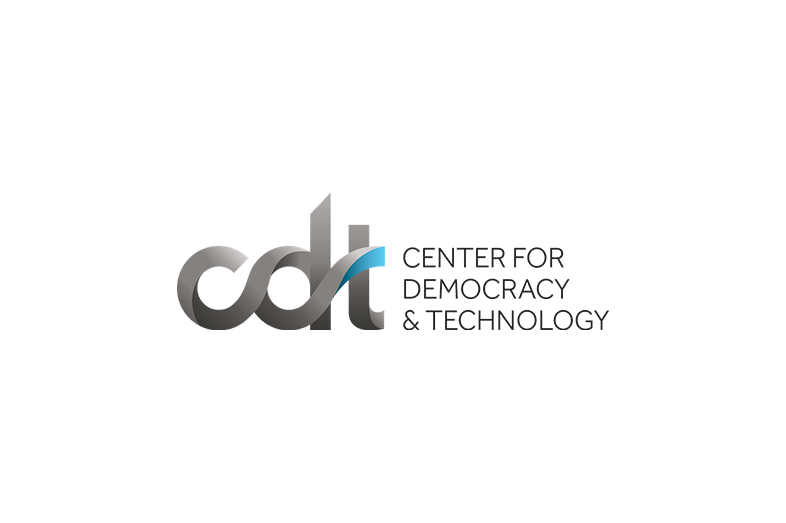(WASHINGTON, DC) — The Center for Democracy & Technology today released new survey research revealing that 85 percent of teachers and 86 percent of students report they have used AI in the past school year (2024-25), with 50 percent of students using AI for school-related reasons. However, this proliferation of AI use in the classroom is also having negative effects on students. Half of students agree that using AI in class makes them feel less connected to their teacher, and seven in ten teachers worry that AI weakens important skills that students need to learn.
“Our survey research shows that educators and students alike see AI playing a role in the classroom and that they are simultaneously experiencing unintended consequences related to the use of this technology. Now more than ever, students need strong relationships with their teachers and to acquire fundamental skills and knowledge necessary to be successful in the global economy,” said CDT President and CEO, Alexandra Reeve Givens. “The potential benefits of AI in the classroom cannot distract us from the core mission of schools — ensuring every student reaches their full potential.”
The use of AI in K-12 schools is not only affecting students’ relationships with their teachers but also their parents and peers. CDT’s survey research found that students (or a friend of theirs) have had back-and-forth conversations with AI during the 2024-25 school year in these ways:
- Forty-two percent to get mental health support
- Forty-two percent as friend or companion
- Nineteen percent to have a romantic relationship
- Forty-two percent to use as a way to escape from real life
Nearly one-third of students (31 percent) said that they have had back-and-forth conversations with AI for personal reasons (e.g., not for schoolwork) on a device, tool, or software provided by their school. However, only one in ten teachers report they received training or information on how to respond if they suspect a student’s AI use is detrimental to their well-being. Meanwhile, 38 percent of students agree that it is easier for them to talk to AI than their parents, and over two-thirds of parents and students agree that parents have no idea how students are interacting with AI.
“As many hype up the possibilities for AI to transform education, we cannot let the negative impact on students get lost in the shuffle,” says Elizabeth Laird, Director of the Equity in Civic Technology Project at CDT. “Our research shows AI use in schools comes with real risks, like large-scale data breaches, tech-fueled sexual harassment and bullying, and treating students unfairly. Acknowledging those risks enables education leaders, policymakers, and communities to mount prevention and response efforts so that the positive uses of AI are not overshadowed by harm to students.”
As the current Administration brings unprecedented attention to K-12 schools’ use of AI, nine organizations have joined a letter to Secretary Linda McMahon calling on the U.S. Department of Education to integrate its Principles for Responsible AI Use into its commitments in executive order titled Advancing Artificial Intelligence Education for American Youth, particularly related to its administration of grants funds and research programs. Doing so is critical to realizing the potential benefits of AI use in K-12 schools while minimizing the risks to students.
CDT’s research is based on nationally representative surveys of 6th-12th grade public school teachers (n=806) and parents (n=1,018), and 9th-12th grade students (n=1,030). Additional topics covered in this report include AI literacy, deepfake non-consensual intimate imagery, student activity monitoring, privacy issues related to transgender and immigrant students, and more. The full text of the research report can be accessed at: https://cdt.org/insights/hand-in-hand-schools-embrace-of-ai-connected-to-increased-risks-to-students/
###
The Center for Democracy & Technology (CDT) is the leading nonpartisan, nonprofit organization fighting to advance civil rights and civil liberties in the digital age. We shape technology policy, governance, and design with a focus on equity and democratic values. Established in 1994, CDT has been a trusted advocate for digital rights since the earliest days of the internet. The organization is headquartered in Washington, D.C., and has a Europe Office in Brussels, Belgium.
CONTACT: Drew Courtney, Center for Democracy & Technology
press@cdt.org | (202) 407-8824
Want to see your release on the EWA site? Promote it with EWA.
